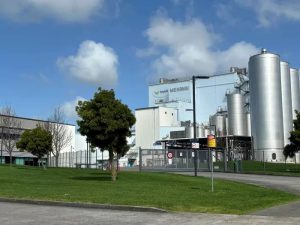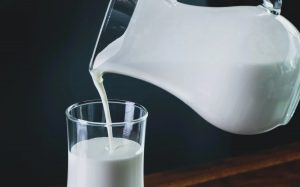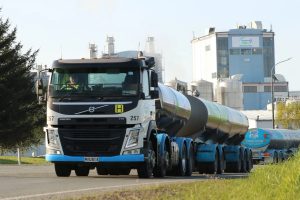
The country’s largest dairy company wants to adopt a more flexible shareholding structure, allowing farmers to hold fewer shares and widening the pool to include sharemilkers, contract milkers and farm lessors as associated shareholders.
Its farmer suppliers voted in favour of the proposal in December last year, and the company is now waiting for the Government to approve the changes under the Dairy Industry Restructuring Act which enabled the creation of the dairy giant in 2001.
Fonterra is re-shaping its business as a period of rapid expansion in the country’s dairy herd comes to an end as dairy farming faces increased regulation to reduce its environmental impact.
“We’re entering a period where milk supply in New Zealand is going to be declining, most likely, or flat at best, so it creates a completely different dynamic” McBride said. “We’re not looking to raise capital to build stainless steel anymore, so the previous 20 years isn’t the future.
“It’s imperative when you’ve got all those factories in place, that you need a sustainable milk supply. This is a very long-term strategic reset for the co-operative.”
Fonterra’s rivals don’t require farmer suppliers to buy shares, and the co-operative has cited its high level of compulsory investment as one of the most influential reasons for farmers leaving the co-operative. Its share of the country’s milk pool has fallen to 79% from 96% since 2001.
McBride said Fonterra’s requirement for suppliers to buy shares was a “significant barrier”, and loosening the rules would provide more choice for farmers and make it easier to join.
Fonterra has said that without the changes, it was concerned it would continue to lose market share, with its milk supply potentially falling by as much as 20% by 2030, making it less efficient and unable to pay farmers as high a price for their milk, or invest back in the business.
Without change, it would be “significantly more challenging” for Fonterra to compete for milk, McBride said.
“It’s not a level playing field at the moment. This makes it more level,” he said. “A pure level playing field would be Fonterra requiring no capital from its farmers.”

Although Fonterra argues that the changes will increase competition and provide more choice for farmers, some of its rivals say it will strengthen the company’s market dominance, and the Government has proposed changes to add safeguards to protect the interests of all stakeholders.
Fonterra has provided its feedback on the Government proposals as part of a process being run by the Ministry for Primary Industries.
While Fonterra supported the majority of the proposals, McBride said it opposed reducing the company’s discretion to set the base milk price by giving the Commerce Commission the power to make its review findings on Fonterra’s inputs, assumptions and processes binding on the company.
The additional measure was not necessary, and would add significant cost, he said.
Rivals have been critical of how Fonterra sets its milk price payments to farmers, although Fonterra strongly rejected any suggestion it manipulates the milk price calculation.
McBride said Fonterra would like to see all processors required to publish their farmgate milk prices.
“In my view, there should be one reporting standard that we all have to report to,” he said. “We think transparency is powerful, and actually enhances competition.”






















